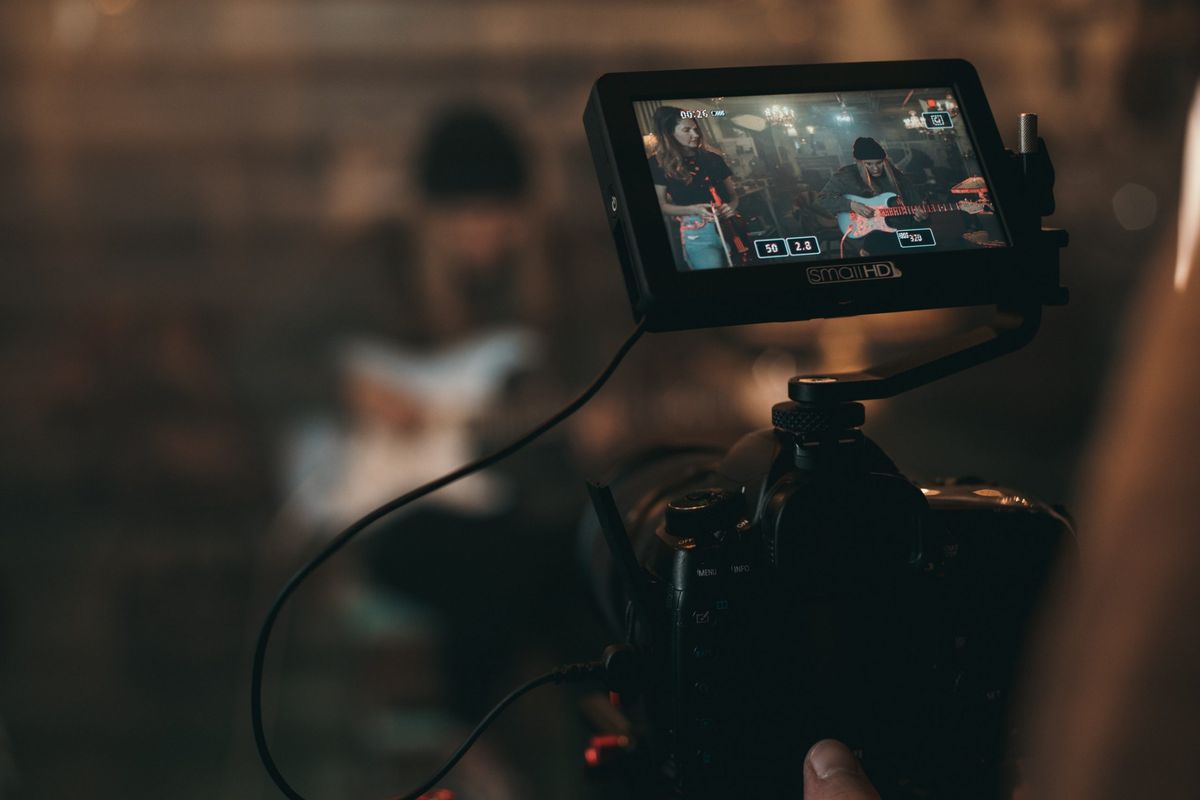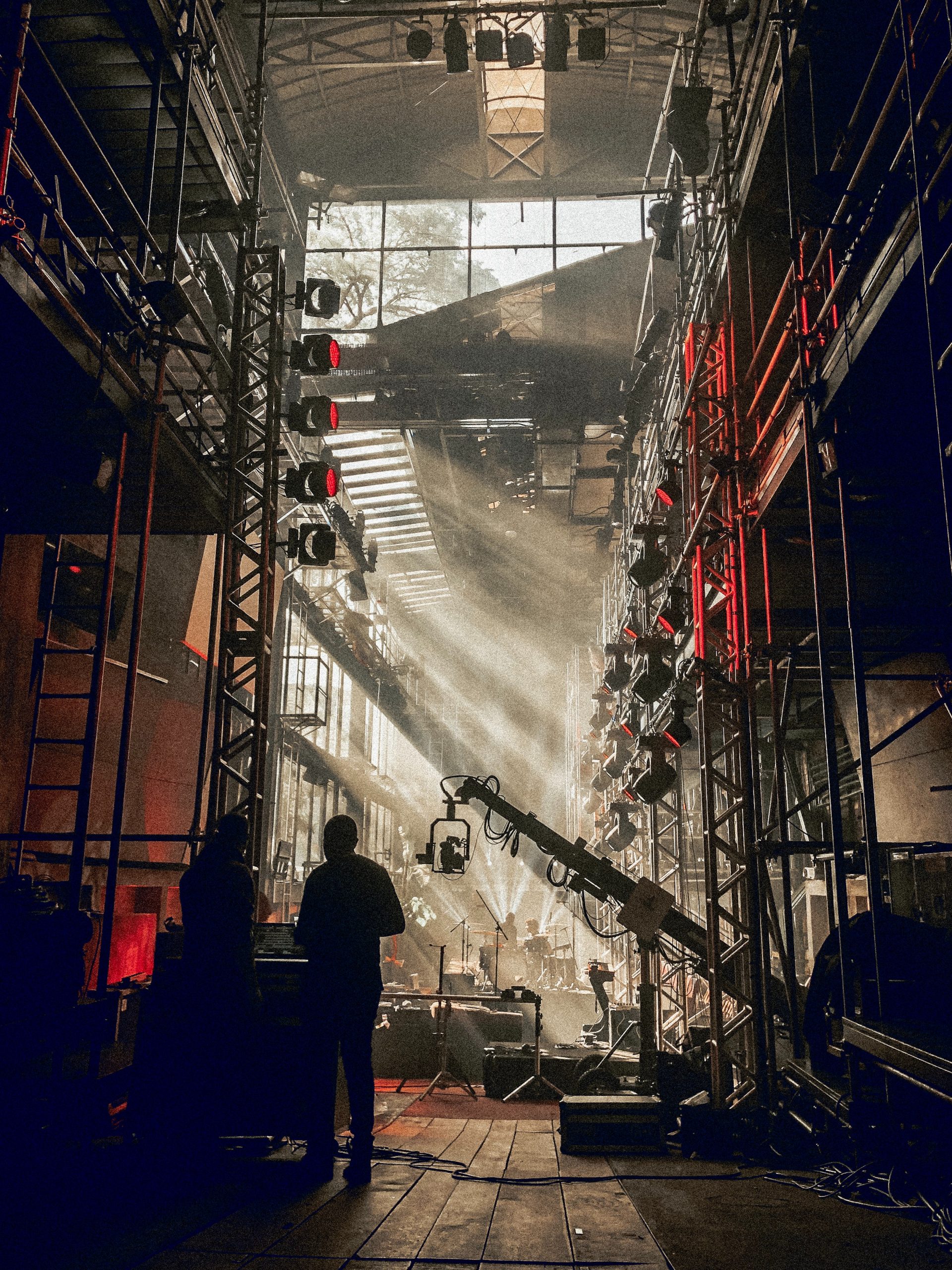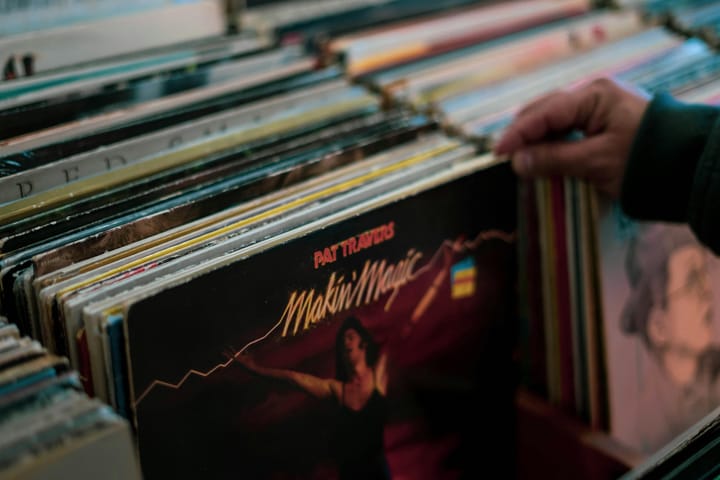Where does the film industry go after COVID-19?

A few minutes every morning is all you need.
Stay up to date on the world's Headlines and Human Stories. It's fun, it's factual, it's fluff-free.
In the wake of the COVID-19 pandemic, online media platforms have seen a boom in consumption, with Netflix adding 15.8 million users in April and peaking at a record $454.19 a share in mid-May. But traditional venues for watching films have not been so lucky.
While theater companies such as AMC may have staved off bankruptcy for the time being, it’s unclear what the simple act of going out to a movie will entail in the near future.
The cast and crew

“There is no doubt it is tough being an artist during this crisis,” says Luciana Faulhaber, an actor/director from Brazil, currently living in Los Angeles. “Not only because as artists we are the core of the gig economy which provides us very little benefits in a time like this, but also because all of our work sustaining and entertainment wise has been practically obliterated.
“Quarantine has been tough, but it has also been a tool in evaluating the importance of artists to society and what are meaningful contributions. In a time when we are all home voraciously consuming content that is keeping us sane is alone a testament of the importance of what we do and of all people involved in the creation process.”
Faulhaber sees newly proposed guidelines limiting the number of crew members allowed on a project as a potential problem for people who rely on those jobs. However, she also sees an opportunity for actors down the road.
“I believe that now, with the guidelines, shooting will take longer and with the resurgence of true indie filmmaking, more opportunities will open up,” she says.
Faulhaber sees the current crisis as a path to a more open and diverse field.
“As a Latinx woman, there are a limited amount of roles in every production for people of color. I don’t know about you, but I am tired of seeing the same people on every show and so many remakes as if there are no great new stories out there. The world has changed, the industry has changed, it is time for the creative control to follow suit.”
A new direction
Faulhaber also has experience in content creation, having written and directed the 2018 horror film “Don’t Look.” As the film industry has ground to a halt, Faulhaber has shifted her focus to that side of the industry.
“I’ve been using my time in isolation to finish projects I had already in the works as well as tell stories that bring to light social issues. So, it wasn’t [as] much of a shift as content creation is a big part of my life as much as it was an opportunity to give those projects more attention.”
Faulhaber recently completed a short film entitled “Mom!” with a fellow Brazilian immigrant who is also feeling the stress and worry of being locked down away from friends and family.
“The feeling of impotence drove us together to create this short now on YouTube because we believe many others like us are suffering with being away from their home countries, culture, language and families during this difficult time.”
A virtual rewards show
Jeremy Osbern, a filmmaker, who most recently worked as a cinematographer on the upcoming film “The Big Ugly,” starring Ron Perlman, Malcolm McDowell and Vinnie Jones, discussed the trouble with getting back to work quickly.
“For films it’s going to be hard. I’ve worked on films that have 300 crew people on set at the same time, or have 500 background extras. How do you protect all those people?
“At one point I received an email that stated that IATSE (the film workers union) was at 100% unemployment,” Osbern said. “I was about to start shooting a pretty high budget level film starring an Academy Award winner. That is now indefinitely postponed. I hope it’ll come back at some point, but at this point everything is up in the air.”
In the past year, Osbern and his wife produced “The Square Root,” a short-form episodic series that has been nominated for a Daytime Emmy Award, Osbern’s second nomination.
“The whole film festival and award circuit has been thrown off. It started when SXSW [was] canceled. Now there’s a mad scramble to move everything into an online space. The Daytime Emmys are going to be broadcast on CBS, but it’s going to be a virtual ceremony.”
A delayed premiere
Jorgy Cruz, an independent film director in Boston whose business, Longwood Media, has been hit especially hard by the coronavirus pandemic.
“We don’t have any projects right now. We’re talking to people. The people that we’re talking to, they’re worried. They don’t want to spend a lot of money.”
Cruz spent five years working to complete his most recent documentary, “Funny Pains,” which was released on May 26. Longwood Media had been planning a premiere and had hoped to participate in film festivals before ultimately being forced to write off those plans in March.
“No festivals right now. We pulled out since COVID. We’re only being considered for the Boston Film Festival. Boston Film Festival will be held in September with virtual screenings and possibly live premieres of some films, depending on the pandemic, according to their website.
“We came out on streaming platforms because every single theater is closed, which is pretty weird. What makes it official is the premiere. I really want to go to the theater and see it with friends,” Cruz said.
Regarding Longwood’s current project, a documentary focusing on the lives of female wrestlers, which was in production when the pandemic struck, he notes, “We really don’t know what’s going to happen.”
As for the project, he says, “It’s going to be interesting, we’re following three independent women’s wrestlers. I can only imagine going to the show and seeing people standing six feet apart.”
Cruz sees the pandemic and its impact on wrestling as a unique avenue he can explore and possibly add to the film, exploring what the subjects have been doing with their time and who they are outside of the wrestling world.
One of Cruz’s concerns going forward is travel. He says he’s not as concerned for himself as he is for his subjects, who are constantly traveling to shows.
“Whenever wrestling comes back, we’ll pick it up from there.”
Cruz’s business, supplemented by commercial video editing, has seen potential clients influenced by the “new normal.”
“Imagine they’re at home seeing Jimmy Fallon, or Kimmel, or Colbert doing their show with an iPhone, people get used to that. I think that’s going to hurt us for a while because people are going to think, Oh, you can do whatever with your iPhone.”
Cruz believes quality visual content will eventually prevail, but for the time being, he’ll have to adapt. “For a while, we’ll charge less. I was a film teacher before; I think I’m going to teach again.”
Still, Cruz recognizes that things could be worse.
“If we employed fifteen, twenty people, we would’ve been screwed, [but] because it’s mostly just the two of us, we’ll be fine.”
Have a tip or story? Get in touch with our reporters at tips@themilsource.com
Sign up for daily news briefs from The Millennial Source here!




Comments ()